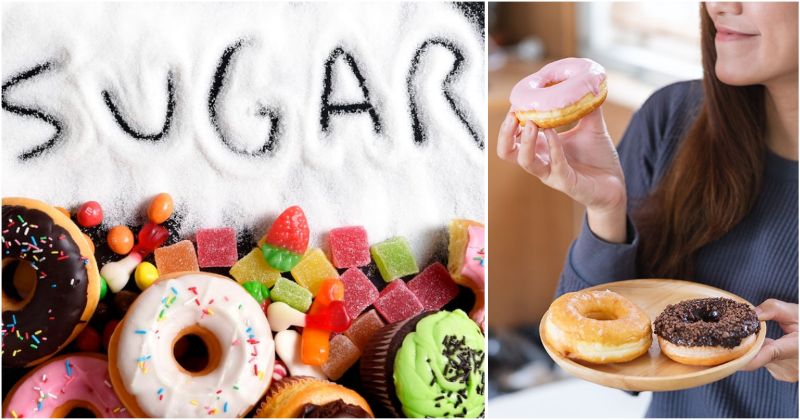People often think weight loss is all about consuming as many fewer calories as possible, but then, it’s not that simple! Some individuals even when they eat less and exercise more, struggle to lose weight. There might be a lot of reasons why their bodies resist losing weight, holding onto those extra pounds no matter what they do. It can be really frustrating when you’re doing everything right but still not seeing results. Now, it has emerged that one of the main reasons why people find it extremely difficult to shed weight is due to insulin resistance. It’s a condition that not only makes weight difficult, it also increases the risk of type 2 diabetes. To delve deeper into the intricacies of insulin resistance and its impact on weight loss and overall health, continue reading the full article below.


What is Insulin Resistance?
Insulin is a hormone which regulates blood sugar in the body and helps the cells process sugar from the blood to be used as energy. When someone becomes insulin resistant, their body cells do not respond well to insulin’s efforts, and they not readily take up glucose/sugar from the bloodstream as they should. Instead, there’s too much glucose floating around in the blood all the time. To try to get rid of this extra sugar, the pancreas keep pumping out more insulin, but that doesn’t solve the problem, and there are frequent insulin spikes.
Main Symptoms of Insulin Resistance:
1. Stubborn belly fat.
2. High blood sugar levels.
3. Obesity.
4. Frequent hunger pangs and thirst.
5. Fatigue.
6. Difficulty in losing weight.
7. Skin tags.
8. Dark patches on the skin (acanthosis nigricans).

Now, coming to the topic of discussion:
Why It is Difficult to Lose Weight with High Insulin:
Now, here’s the problem – insulin promotes the storage of excess glucose as fat in the adipose tissue. When insulin spikes are too frequent and levels too high, the body stores more and more fat, which leads to weight gain. And before we forget, most of this fat is stored around the belly area! Eating a lot of carbs, especially refined ones like white flour or sugary foods, triggers a sharp release of insulin from the pancreas.
When there’s too much glucose and calories in the bloodstream, they’re stored in the liver and muscles. Once those stores are full, insulin turns excess glucose into fat and creates new fat cells. It also signals the body to hold onto fat, making it harder to burn off.
Cutting down on refined carbs and sugar can help with weight loss. Without extra glucose from sugar, the body won’t store as much fat. With a strict exercise and diet plan, you can lose weight more effectively and reach your goal weight faster.
How To Lose Weight with Insulin Resistance?
1. Cut out White Flour and Sugary Foods: Cut down on white sugar and added sugar to lose weight and lower your chances of getting diseases like type 2 diabetes and heart problems. When you first quit sugar, you might feel awful with headaches, dizziness, and mood swings. But after a while, your body will get used to not having sugar, and you’ll feel more energetic and focused. Also read: “How Insulin Makes you Fat and Prevents Weight Loss.”
2. Eat More Vegetables and Fruits: Increasing fiber in the diet gives you a sense of fullness and helps cut down calories a great deal. The fiber in whole grains makes them digest more slowly, so your blood sugar doesn’t react as quickly and insulin levels stay more stable. Vegetables and fruits like apples, carrots, sweet potatoes, pear, oranges, etc., are good sources of fiber.
3. Increase Protein Intake: Increasing protein intake can combat insulin resistance by promoting weight loss, reducing appetite, preserving muscle mass, boosting metabolism, and regulating hormones involved in glucose metabolism. Protein-rich foods help increase satiety, leading to lower calorie intake and improved insulin sensitivity. Additionally, protein supports muscle building and repair, which can enhance metabolic rate and glucose metabolism. Add sources of protein in your daily diet- lean meat, eggs, soya, lentils and so on. These help in firing up your metabolism and burning fat.
4. Get Moving and Say Bye to Sedentary Lifestyle: No need to hit the gym with a vengeance, just brisk walking for 30 minutes would help boost your metabolism and get your hormones in order to begin with. As you get comfortable with physical activity, include 40 minutes to one hour of exercises in your daily routine to regulate insulin levels.
5. Avoid Processed Food: Eliminating processed foods from your diet can significantly improve insulin resistance by reducing sugar and refined carbohydrate intake, decreasing inflammation, and promoting weight loss. Processed foods often contain high levels of added sugars and refined carbohydrates, which can lead to frequent spikes in blood sugar levels and strain on insulin-producing cells. Additionally, these foods often contain artificial ingredients, artificial flavour, colors, etc., that contribute to inflammation, which is a key factor in insulin resistance. By replacing processed foods with whole, nutrient-dense options, individuals can stabilize blood sugar levels, reduce inflammation, and improve insulin sensitivity. Also read: “Pants Feeling Tight? 7 Top Weight Loss Tips To Lose Belly Fat.”
6. Follow a Low-Carb Diet: A low-carb diet holds the key to tackle insulin resistance. Don’t cut out carbs completely, in fact, choose your carbs wisely. Rati Beauty diet programs help you to practice a low-carb diet into your routine to help you lose weight effectively.
7. Amp up Magnesium Intake: Magnesium deficiency can cause insulin resistance, so make sure you are getting enough magnesium in your diet from foods such as beans, almonds, cashews, spinach, okra, peanut butter, tofu, black-eyed beans, chickpeas, etc.
8. Practice Yoga: Certain yogasanas like kapalbhati, pranayam, vakrasana, dhanurasana, sarvangasana, etc. help to activate pancreas and regulate the production of insulin. These asanas also help you with weight loss.
How Insulin Makes you Fat and Prevents Weight Loss
Pants Feeling Tight? 7 Top Weight Loss Tips To Lose Belly Fat




